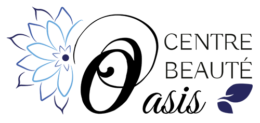Térapo Médik
Whatever the condition of your hair or your scalp, our Térapo Médik experts certified in Trichology can give you answers and offer you a solution to all common hair conditions.
Asked for our experts Caroline Gendreau or Sabrina Cousineau Charbonneau for any information or for an evaluation with the specific camera system to directly view the photos of your scalp.
Common Hair Conditions
Dandruff
Scalp cells renew themselves regularly. However, in the presence of certain forms of yeasts or parasites that attack the scalp, the renewal process can be accelerated to the point of causing dandruff.
Dry dandruff forms on a generally dry scalp, and easily breaks off to become lodged in the hair or on clothing. Oily dandruff is more voluminous, adherent and yellowish. They are held to the scalp by a layer of sebum.
In addition to being unsightly, dandruff can be itchy. The important thing is to properly identify the nature of the dandruff before looking for an appropriate solution.
Chemotherapy or radiotherapy
Often necessary in the treatment of cancer, chemotherapy and cranial radiotherapy decrease or stop cell activity in the hair follicles and sebaceous glands. Hair falls out a few days after starting treatment.
The scalp can become sensitive, irritated and dehydrated during treatments. When these are finished, the hair grows back. The hair cycle restarts, but hair that is still weakened is therefore more at risk of being damaged by treatments such as coloring, permanent waves and certain hair products.
The amount of hair loss and the speed at which it regrows varies from person to person. Every treatment and every patient is different.
Oily hair and scalp
A variety of causes and conditions can trigger oily scalp issues like seborrhea that are hereditary. The origin is usually in the scalp. The sebaceous glands secrete too much sebum, an oily substance that protects the hair.
Hormonal changes, a diet too rich in fat, a lack of vitamins, intoxication or stress, for example, can cause this capillary disorder. With age, one can also develop oilier hair and scalp.
The accumulation of sebum harms the development of new hair, which tends to thin out over time. It can also be associated with a more serious hair problem such as hair loss.
Dry hair and scalp
The aggressions of our environment and certain aesthetic treatments can cause dryness in the scalp or hair. Perms, colorings, but also swimming pool or sea water as well as insufficient hydration can also explain this condition.
Under such circumstances, the sebaceous glands can no longer lubricate the hair sufficiently to maintain its suppleness and softness. Sebum production can also decrease with hormonal changes, at menopause for example, or simply with age.
It is important to clearly identify the needs of your hair. Not all cases of dry hair require the same care.

And even more
Like other parts of our skin, the scalp can become the source of itchy sensations. Sometimes dry, oily, or irritated, it can also develop redness, crusts, dandruff or plaques.
This itching is a sign that your scalp needs some attention. Symptoms can have a wide variety of origins, but there are suitable solutions to soothe most urges to scratch your head.
Your scalp can be sensitized by chemical treatments, by the use of a product not adapted to the state of your health or that of your hair, or dehydrated by a diet high in salt and low in water. There is no single answer to itchy scalp problems.
The scalp is constantly renewing itself at the cellular level. In a case of psoriasis, this cycle is 10 times faster than normal. The new cells accumulate in thick patches covered with white, dry scales.
The constant itching and the appearance of patches around the face are physically and mentally taxing, which only worsens the symptoms. This condition can occur on other parts of the body, but because the hair keeps it from falling out, the scales are thickest and most troublesome on the head.
There is no treatment for psoriasis, but some products can significantly reduce its unpleasant effects such as itching and dryness.
During pregnancy, it is not uncommon to notice that the hair becomes more abundant, more voluminous and sometimes less greasy. Hormonal changes exert a major influence on hair growth and sebum production.
Also during the last months of pregnancy, the fetus will develop its own hair system by appropriating amino acids from the mother. For a period of three to six months after giving birth, she may experience significant hair loss due to hormonal changes.
This all-natural hair loss will often stop on its own, but regrowth will need to be stimulated. The health of your scalp during this period is essential to avoid weakening your hair.
Just like the rest of the body, skin and hair are constantly renewing themselves at the cellular level. New hair comes to replace others at the rate of several dozen per day.
Spring and especially autumn are the periods when this moult is the most intense. Natural hair loss can accelerate or appear to accelerate under certain specific conditions. With a lack of care, the scalp accumulates residues and can retain hair that is already separated at the root. This buildup will eventually fall into denser clumps.
Optimal regrowth requires a healthy scalp. Poor hair hygiene or products that leave residue impair this process. When the hair loss lasts less than three months, it may be a simple seasonal change.
The appearance of alopecia areata, consisting of one or more round, smooth and flexible glabrous patches, is always very sudden. Also called “alopecia areata”, or “alopecia areata”, this hair loss is not always permanent.
Often associated with an emotional shock, medication, infection or even stress, it is an autoimmune reaction where the body attacks the hair follicle cells.
The hair bordering the plates comes off easily, but the hair follicle, under the skin, is always there to restart growth at the right signal from the body. However, this can take from a few weeks to several years. If there is no miracle solution, the chances of stimulating regrowth are better if we intervene quickly.
In women, it is an increasingly common phenomenon. The environment, diet, stress, chemical processes or general health can all affect the health of the scalp and hair.
There are several forms of hair loss in women, temporary or permanent. The origin can be hereditary, hormonal, directly related to a health problem, medication or even surgery. Quickly and correctly identifying the cause avoids wasting time and money on poorly adapted treatments. Taking the appropriate measures quickly is the key to stopping the progression of hair loss.
There is no miracle cure, but there are solutions that can help balance your hair cycle and promote healthy hair.
In men, hair loss is in more than 95% of cases androgenetic, therefore hereditary. A specific enzyme transforms testosterone into DHT which will permanently stimulate the sebaceous glands. The excess oil clogs the follicle in which the hair grows and ends up asphyxiating the bulb.
Baldness progresses in several phases and over several years, from the receding of the frontal temporal angles to the opening of the vertex, until leaving only a crown on the ribs and back. This cycle accelerates under the influence of poor diet, stress, medication or the use of certain products that leave deposits on the hair.
There is no miracle cure, but there are solutions to help balance your hair cycle and slow down the process.
Scalp eczema, known as seborrheic, begins with the appearance of dandruff and then red patches that can become oily and yellowish. Under the effect of sebum, a fungus naturally present on the scalp would contribute to the spread of symptoms, accompanied by itching and burning sensations.
This form of dermatitis can last from 1 or 2 weeks to several years. It mainly affects men between the ages of 18 and 40 chronically, but increasingly also women. Generally localized on the scalp, it can extend from the forehead to the rest of the face and body.
While there is no miracle cure, appropriate products will bring significant and sometimes even complete improvement.
